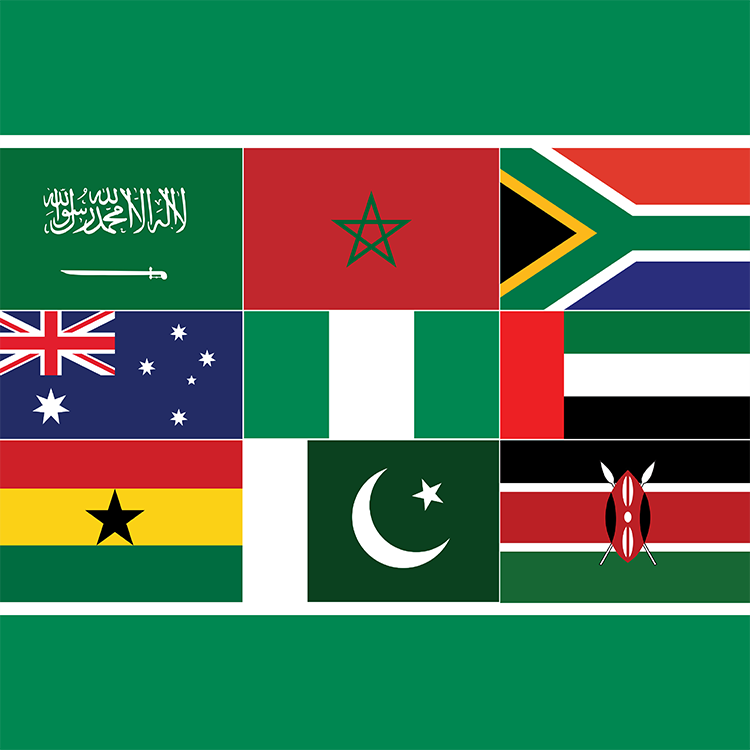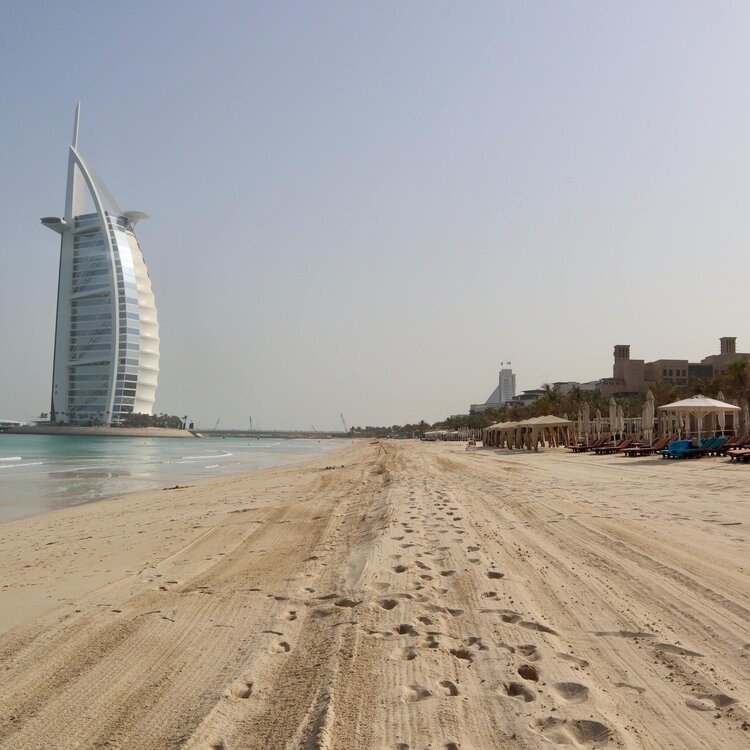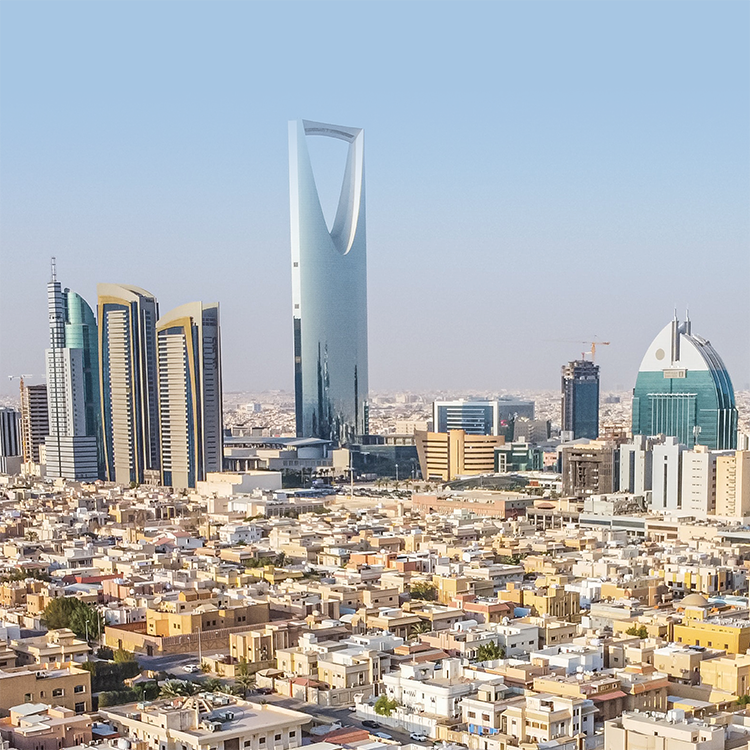The Middle-East and Africa region comprises two distinct sub regions – Middle East and North Africa (MENA), and Sub Saharan Africa. Pre-pandemic, the World Bank and IMF had predicted 3-4% economic growth in the sub regions in 2019-2021. But with the onset of COVID, only certain economies in MENA are expected to rebound this year compared to the rest of the region, due to benefits from higher crude prices, reduction of OPEC+ cuts, and vaccine rollout.
Normalization of political and economic ties between Israel and the United Arab Emirates (UAE) was looked to bring about stabilization in the Arab world. However, continuing geopolitical tensions, weakening fiscal outlooks, and uncertainty around the pandemic are presenting trade challenges across the MEA region.
Austrade has presence in the following key markets through offices and trade representatives that support the wider region in identifying significant opportunities for Australian businesses across priority sectors:
- MENA: UAE, Saudi Arabia, Morocco, and soon to open an office in Qatar
- Sub-Sahara: Ghana, Nigeria, South Africa, Kenya
- Other: Pakistan
Australia’s highest ranking partners in terms of total merchandise exports are the UAE (#17), South Africa (#25) and Saudi Arabia (#26).
Austrade, along with a widespread Department of Foreign Affairs and Trade (DFAT) network, and state governments, works closely with allies and partners, such as the Australian industry associations, business councils, and chambers of commerce and industry, to provide robust support to Australian businesses coming to the market.
Regional focus lies in maintaining and growing market share in strategic sectors of food and agribusiness, education, mining and resources, defence and space, healthcare, infrastructure, and digital technologies.
Leading the way
Australia is seen as a source for premium, whole and organic food with product traceability and clean label ingredients.
Australia’s agriculture and food exports to the Gulf Cooperation Council (GCC) nations were over AUD$2.8 billion in 2020. UAE, and Saudi Arabia ranked in the top 20 trading partners in this category, and ranked in the top five international markets for Australian fresh vegetables in 2020.
Australia’s third largest sheep meat destination is the UAE, and it has been a key supplier to the Middle East and North Africa region for over 50 years. As of recently, Australian Wagyu found a new market in Kenya after demand for premium Australian meat increased following a series of food roadshows organised by Austrade in 2017 and 2018.
Opportunity in diversity
MEA markets are the fifth largest regional group with 49,189 student enrolments in 2020 (covering North Africa, Middle East, Sub-Saharan Africa and Pakistan). This is around 5-6% of total international student enrolments.
There is considerable diversity across the region, and with Covid-19, new and emerging trends are focused on innovation and digital agenda to drive economic growth. Additionally, a significantly young population is seeking quality education engagement.
Australia has a strong transnational footprint with higher education and TAFE providers active in MEA markets (UAE, Saudi Arabia, Kuwait, and Mauritius). These educational institutions are not only targeting students from the broader MEA region, but have also appealed to learners from the Indian sub-continent, looking to study closer to home.
The pandemic has been a ‘reset’ for education across MEA. Digital and new ways of learning are here to stay in different formats providing opportunities for Australian EdTech sector.
Significant footprint in Africa
According to Global Data, Africa has over 132 ASX-listed mining companies, operating 458 mines across 34 countries on the continent. At the start of 2020, there were up to 170 Australian METS companies in operation; with a larger proportion of them operating across the southern and western part of the continent.
In the Middle East, Saudi Arabia plans to spend more than USD $7.4 billion exploring for metals and minerals by 2035. This is part of a USD $426 billion infrastructure spending plan that seeks to exploit what could be USD $1.3 trillion in resources.
Also, large untapped resource potential in Turkey exists with 50 different minerals and metals in economically viable quantities (the largest gold producer in Europe). At least 40% of Turkey’s prospective area is not yet explored.
Untapped market potential
The Gulf Cooperation Council (GCC) healthcare market is set to cross USD $30 billion in 2021.
Healthcare is one of the most important service sectors in the UAE. In 2019, total healthcare expenditure in UAE totalled USD $1.3 billion (comprised 7% of federal budget). And building a new healthcare infrastructure and digitisation of services are a priority for Saudi Arabia under the Saudi 2030 Vision.
Australian healthcare providers active in the region include Aspen, Cochlear, TAHPI, and Synapse.
The other key sectors such as, defence and space, infrastructure, and digital technologies, are seeing significant opportunities mainly in UAE, Saudi Arabia, South Africa (Space), and Kenya (digital technologies).
In terms of investment, the Gulf States have 4 of the 10 largest Sovereign Wealth Funds (SWFs) in the world. Of the six GCC countries, the highest total foreign investment in Australia was by Kuwait at AUD $13.3 billion, followed by the UAE at AUD $12 billion in 2019.
Complementing DFAT’s efforts at Expo 2020 Dubai, Austrade will support the Australian Pavilion activities by scheduling programs around major commercial exhibitions that are taking place in the region, such as Gulfood, Arab Health, Big 5, Mining Indaba, etc.
The pandemic has shown exporters the importance of diversifying and looking beyond traditional trade markets, and the MEA region even though a bit challenging, offers plenty of scope for Australian companies to expand their international presence.
We are keen to support you in-market, and provide further insights if you are looking at doing business in the region.
Connect with us at www.austrade.gov.au



